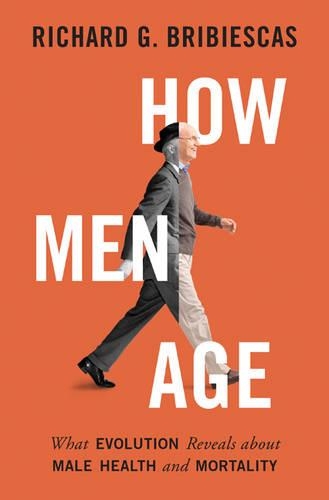
How Men Age: What Evolution Reveals about Male Health and Mortality
(Hardback)
Available Formats
Publishing Details
How Men Age: What Evolution Reveals about Male Health and Mortality
By (Author) Richard G. Bribiescas
Princeton University Press
Princeton University Press
14th November 2016
United States
Classifications
General
Non Fiction
Biology, life sciences
Human biology
Anatomy
Physiology
613.0423
Physical Properties
Hardback
192
Width 152mm, Height 235mm
454g
Description
While the health of aging men has been a focus of biomedical research for years, evolutionary biology has not been part of the conversation--until now. How Men Age is the first book to explore how natural selection has shaped male aging, how evolutionary theory can inform our understanding of male health and well-being, and how older men may have c
Reviews
"[T]he best short summation I've seen of a massive body of research."--Michael Shermer, Wall Street Journal "Bribiescas draws on the latest findings in anthropology, endocrinology, and genetics to help us understand the male-aging process... How Men Age is wry, sly, informative, and provocative."--Glenn Altschuler, Psychology Today "Bribiescas makes a wonderful case for considering evolutionary ideas in human health, and provides a great introduction for anyone wishing to join the conversation."--Emily Gregg, Lateral magazine "An enjoyable and humane look at what could have been a bleak subject, spiced with just the right amounts of humour, anecdote, and quirky personal perspective."--David Bainbridge, Literary Review "[T]he lens through which Bribiescas views [male aging], evolutionary biology, offers a nuanced explanation of why, during almost every phase of human life, men die at a higher rate than women."--Brian Bethune, Maclean's "[Richard Bribiescas] applies anthropological and evolutionary biological lenses to a sweeping, succinct review of the phenomenon [of male aging], and does so with good humor."--Harvard Magazine "Do not buy or borrow some book on aging written by a web site, a fake MD, or some other charlatan. Read a book on aging (in men) that first appeared many times in the peer reviewed literature, written by Harvard Trained Yale Expert Richard Bribiescas... You will enjoy this book, especially if you are a man of a certain age."--Greg Laden "Biological anthropologist Richard Bribiescas covers some interesting uncharted territory... Testosterone peaks in early adulthood, so that men are past their physical prime by the age of 30. It's tempting to see it as all downhill from there. But with wit and insight, Bribiescas shows convincingly that's not the case."--Kate Douglas, New Scientist "[How Men Age] certainly enriches our understanding of male health and well-being."--Wan Lixin, Shanghai Daily
Author Bio
Richard G. Bribiescas is professor of anthropology and ecology and evolutionary biology at Yale University, where he also serves as deputy provost for faculty development and diversity. He is the author of Men: Evolutionary and Life History. He lives in Hamden, Connecticut.
